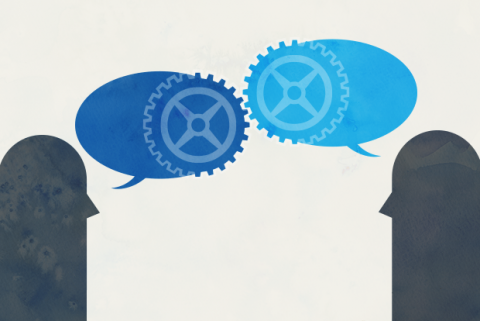Providing customers with detailed data adds value and helps win contracts, according to Anthony Bosco, SVP and CIO of construction company Day & Zimmermann
The Enterprisers Project (TEP): How does IT drive value for Day & Zimmerman’s external customers?
Bosco: In the type of work we do, the way you make customers remember you is not just by providing great service but doing in a way that leaves your mark. One way I’ve made a difference in my 34 years at the company is by creating betterment reports, which explore ways our customers can increase value. Adding that little something special is a way to differentiate—it creates stickiness. I’m not enamored of gimmicks or techie stuff, but I see technology as a lever in the innovation and betterment toolbox.
Technology can do three things. It can drive internal efficiency, which may be where it got its start years ago. It can optimize our own supply chain which enhances our value proposition in the marketplace. And we can use it to work with customers in this betterment spirit, to augment their value proposition in the marketplace. The third of these is most important.
Some of our customers have their own small engineering departments and construction capabilities. Many times, not only are we competing against our competitors, we have customers looking at a make-or-buy decision. We provide a dashboard built on our technology and customers say, “I get better reports from you than I do from our internal team. That’s an exciting part of our value proposition.”
TEP: How do these reports create customer value?
Bosco: It’s providing insight into the work that we’re doing. We have forward-looking tools, for example, in the power business. We are the largest maintenance and modification contractor in the nuclear power market. Utilities take these plants off-line for 6 to 14 weeks while we maintain and improve them. Every day the plant is closed they’re losing money.
We may have to ramp up from 50 people normally at the site to 1,200 to 1,400 people and they want to make sure we have the staff available. With our tools, we can go to the customer and show them how many positions need to be filled and how many people we have signed up. If they worked at that plan in the past, we can show them the person’s rating. That gives them a good assurance that Day & Zimmerman is going to do what it says it’s going to do.
TEP: What technologies enable you to do this?
Bosco: It all starts with a solid ERP foundation and a focus on continuous improvement of internal business processes. Then we expand that to include everything from how we attract and retain employees to how we better integrate with suppliers, as well as what we provide to customers.
It’s about understanding there’s a lot of basic information contained in a large enterprise. How do you pull that together and show it to people so that they can understand not only what’s happened but what’s going to happen? We do it by leveraging our core ERP.
TEP: How do you create continuous improvement?
Bosco: Our philosophy in IT is to have a solid infrastructure so as to provide a good size number of tools and then work within our employee base and create the betterment culture. So we’re looking for new ideas. They can come from IT, a person working on a project, a project manager, and sometimes sales. Most often they come from people working directly with our customers.
We look to our employees to provide information about the problem that needs to be solved, rather than suggest specific solutions. Sometimes in IT, you have to walk a tightrope. Sometimes, they come to you with a solution and it’s not really the right thing. We’re trying to train them to describe the problem and say, “Wouldn’t it be great if…?” rather than, “Give me this tool and I’ll solve the problem.” That way, you get everyone working together.
Anthony Bosco is senior vice president and CIO of Day & Zimmermann, a century-old, family-owned provider of construction and engineering, staffing and defense solutions.




